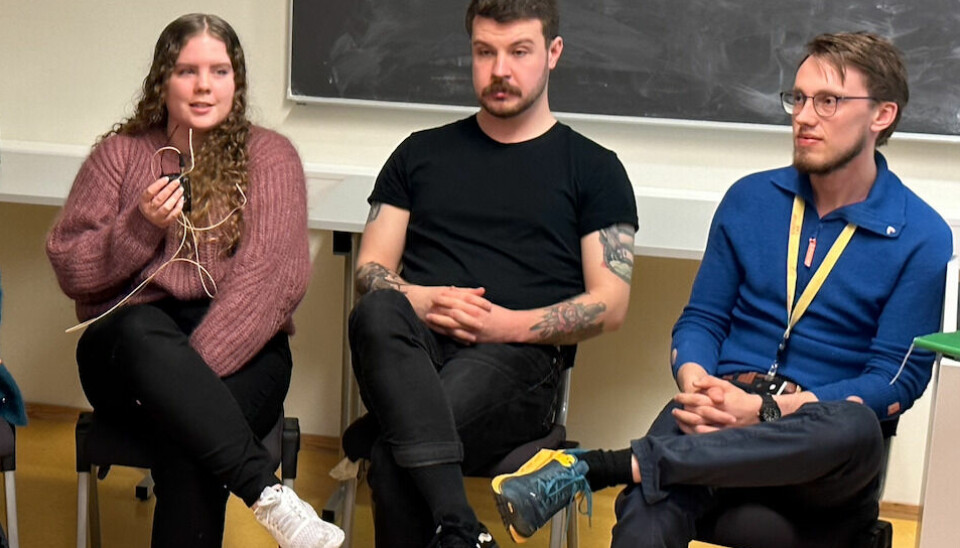Ytring
The necessity of considering language
The «fight for the temporary staff” might start with language, and systemic thinking of the University as “a whole,” this candidate to the NTNU Board election states.
-39% of the staff at NTNU are from other countries, and there are reasons to believe that the percentage of temporary staff is way higher.,Jakob Bonnevie Cyvin (right) reminds.
Foto: Tore Oksholen
Amund Bergland Kvalsvik is today 24.th of March writing about he´s engagement for the temporary staff at
NTNU, and why he´s running for the NTNU Board. I´m also running for the same
role as Kvalsvik, and it is hard to directly disagree with him, and I really
don´t, but at the same time it is important to acknowledge our privilege
of being a PhD candidate or PostDoc in Norway compared to other countries. I
have cooperated with quite a lot of temporary staff in Austria, Germany, Czech
Republic, Malta and the Netherlands, and their terms regarding hours of
teaching, time for research and salary is far from comparable to our conditions.
Of course, there is great potential for even better
terms and conditions, and I would work for it if I became a part of the board,
but it is important to also look out of our own horizon and offices. Representing the
whole university
It is also important to acknowledge that the members
of the University Board are meant to represent the whole University, not solely
one group of employees. If I get elected, I would be elected from the temporary
staff, but when being part of the board, I would be there on behalf of the
whole University, trying to balance needs for more than 8000 staff members, and
more than 43 000 students.
Unfortunately, I do not think that some of Kvalsviks
wishes for he´s mission in the University Board is the right fora for this. The
inclusion of temporary staff and routines for following up candidates and their
work tasks, is more of a department-wise matter.
International employees
39% of the staff at NTNU are from other countries, and
there are reasons to believe that the percentage of temporary staff is way
higher. Language might therefore be the first start to engage this group of
employees. How can all of you that do need to translate a lot of documents
(e.g. faculty board referees, department documents or the text written by
Kvalsvik) before you can get hold of the content, prioritize or have time to
engage yourself?
First step towards a
higher degree of involvement from this group is to be more inclusive in terms
of language in our formal university democratic institutions.
I will work for the same as Kvalsvik if I´m the one to
enter the NTNU board when elements of it is part of the agenda. But balancing
the Campus project, Trondheim, Gjøvik and Ålesund upon each other all as
integrated part of NTNU, as well as joining the current board in transforming
the grants given from Ministry of Education and Research (KD) to NTNU in to a
well-working university from bottom to top, where this also will benefit all
temporary staff is how I see it, the main role of becoming a part of the NTNU
board.
Change
As I see it, multiple of Kvalsvik´s wishes for
changes, is more of a matter for the different Faculty Boards and Department
boards or SiT. Indeed, money for it ultimately comes from KD, and is balanced
by the NTNU board, but I see the role of the main Board of NTNU much more
systemic, and less personalized than what Kvalsvik is drawing up.
Either way, please make up your mind, and vote 27.-29.
March.
Jakob Bonnevie Cyvin
PhD-Candidate, part of MAPLE
Project Leader VR-Learn
Running for the NTNU board election (27.-29.th of March)

























